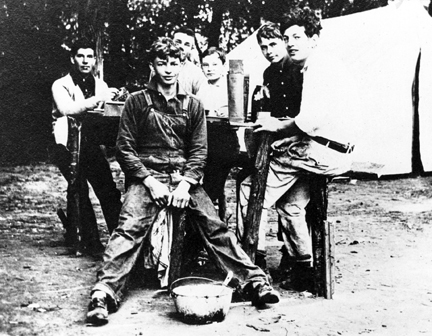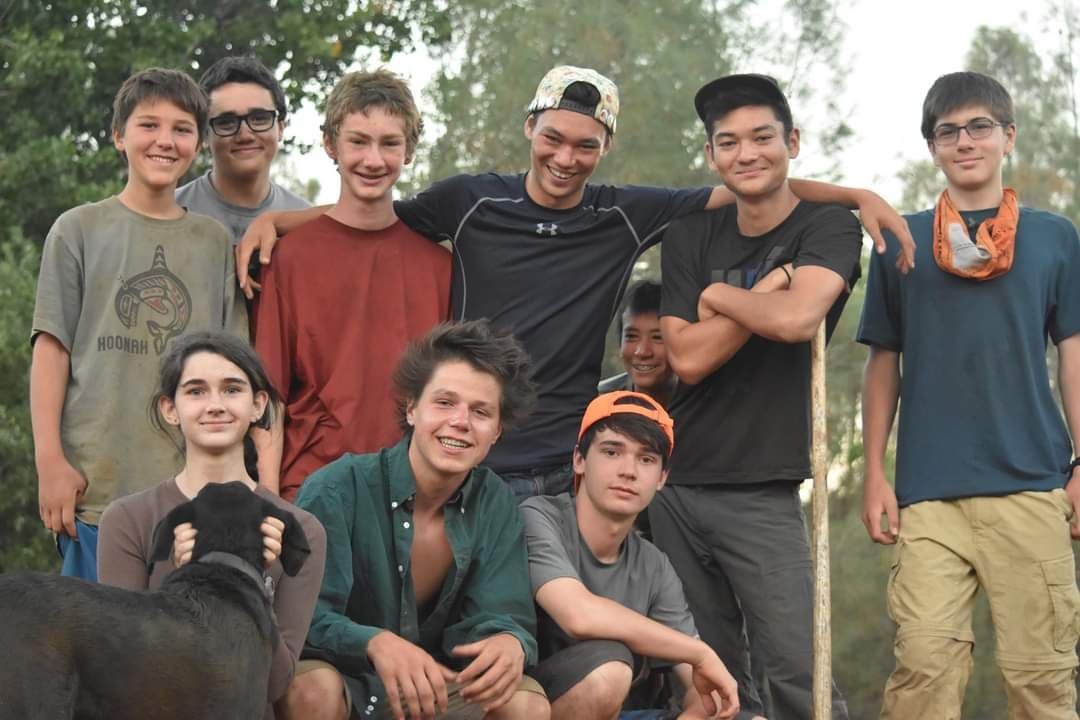Greatest Generation 2.0 – Column by Brian D. King
The focus of the school I started is to create an environment that emulates how good, prosperous people were raised and educated.
My goal was to learn how to prepare our students to be good, prosperous, joyous providers and protectors for their families and communities, as these were key traits of statesmen in the greatest generation, as well as those whom the greatest generation emulated.
A good example would be the number of young men who, before high school graduation, enlisted in the military to protect the liberty they had grown to love after the Japanese attacked the US naval base at Pearl Harbor on December 7, 1941. The same can be said of the young men that joined the fight in Lexington and Concord in 1775, and the students and professors who left Harvard and Yale in 1776 to join the militia and the Continental Army. These young men feared more for the future generations than did themselves when they stepped into battle.
My grandfather would refer to his favorite leaders as statesmen, not politicians. In 1968, when I was ten years old and he was eighty-six, I asked him, “Papa, what is the difference between a statesman and a politician?” He reflected on how he was going to answer by putting a pinch of tobacco in his pipe, packing it down with a tobacco-stained thumb. I remember hearing the tobacco popping as he drew on his pipe. He let out the smoke and gave a long pause as he formulated an answer that stuck with me for a lifetime, “A politician is only concerned about the next election, but a statesman like Eisenhower is concerned about the prosperity of the coming generations.” As a teen I took an interest in studying Eisenhower, and those men whose works he read.
It was serendipitous that my mother-in-law worked for Eisenhower in France when he was the Supreme Commander of the Allied forces. The week before she passed, I spent twenty-four hours a day with her playing songs from the war years, which was her favorite type of music. The music, and my curiosity, would trigger stories from her time working with Eisenhower. Later on I read his autobiography where he spoke of growing up with six brothers on his aunt’s farm, his academy years, his World War I command, the importance of his military work both in the United States and the Panama Canal, and the “why” of his command of the Allied Forces.
An important statement about Eisenhower’s childhood stuck with me, “Growing up was focused around farm chores and Bible study.” Interestingly, George Washington, Abraham Lincoln, and many others I studied, said nearly the same thing.

Overall, these men had a balance of five tenets of focus during their formative years:
- They regularly studied the Holy Scriptures. Writings and speeches of the framers and founders of our nation, show our greatest presidents and statesmen frequently quote from scripture.
- They were responsible for their share of the growing responsibilities at home. Washington, Eisenhower, and others wrote of the importance of their responsibility on the farm growing up. Washington’s father died when George was only ten years old, and he had to take on the responsibility of management of half the farm, while his brother managed the other half.
- They were responsible for finances. Eisenhower’s father’s mercantile business failed, and he could not pay their bills which resulted in the loss of the family home. The family moved onto a farm owned by Dwight’s aunt and fiscal responsibility was drilled in him.
- They learned marketable skills while pursuing hobbies and interests for pleasure. Eisenhower lived for hunting, football, and reading history, all of which taught him that there are multiple solutions to any given problem. As a captain, between World War I and World War II, he wrote a plan that the skills and infrastructure of US companies were transferable to preparing for a future war effort. Eisenhower’s plan had Ford making military jeeps, Singer Sewing Machine making sidearms and aviation guidance systems. Eisenhower studied George Washington who had a passion for trigonometry, surveying, and exploring the wilderness. All served him well in his future military career.
- They maintained health and fitness. Eisenhower nearly had his leg amputated as a kid. He wrote about the incident in his memoirs, sharing how his brother threatened the doctor with death if he tried to take the leg. Later at the academy, he blew out his knee in football, which took him out of his equitation training, and thus ended a future career in the cavalry. His happiness and prosperity were greatly impacted by his physical injury.
As you read future columns, I will share stories of these men, and others you probably know, to convey the importance of these five tenets. You will read how routines were created and implemented to make these tenets ingrained habits in our students.











